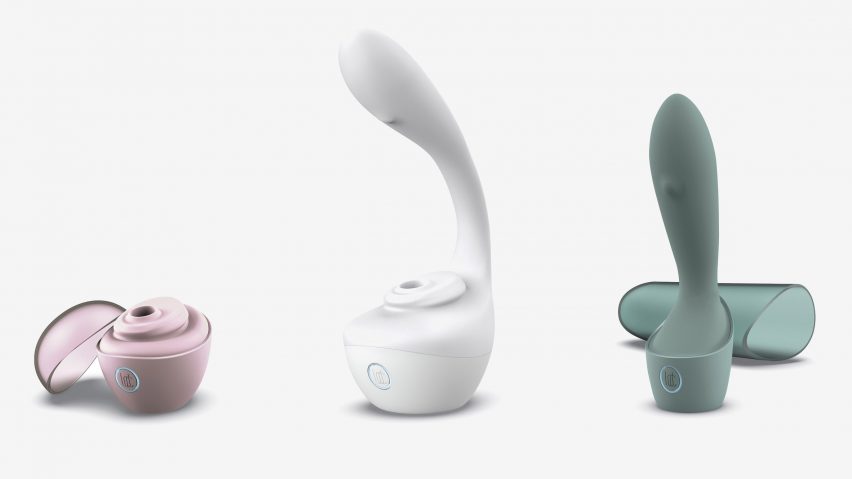
"We're at the precipice of social change" when it comes to female sex tech says Lora DiCarlo
Sexual health technology for women is finally gaining acceptance according to founder of sextech startup Lora DiCarlo, who returned to CES this year with two new robotic massagers after its Osé product was banned in 2019 for being "immoral".
Consumer robotics company Lora DiCarlo unveiled two new additions to its Osé family of "bio-mimetic pleasure devices" – a G-spot massager called Onda and a clitoral stimulator called Baci.
Both products were given a CES Honoree Innovation Award for their use of micro-robotics technology at the event last week, which ran from 7-10 January.
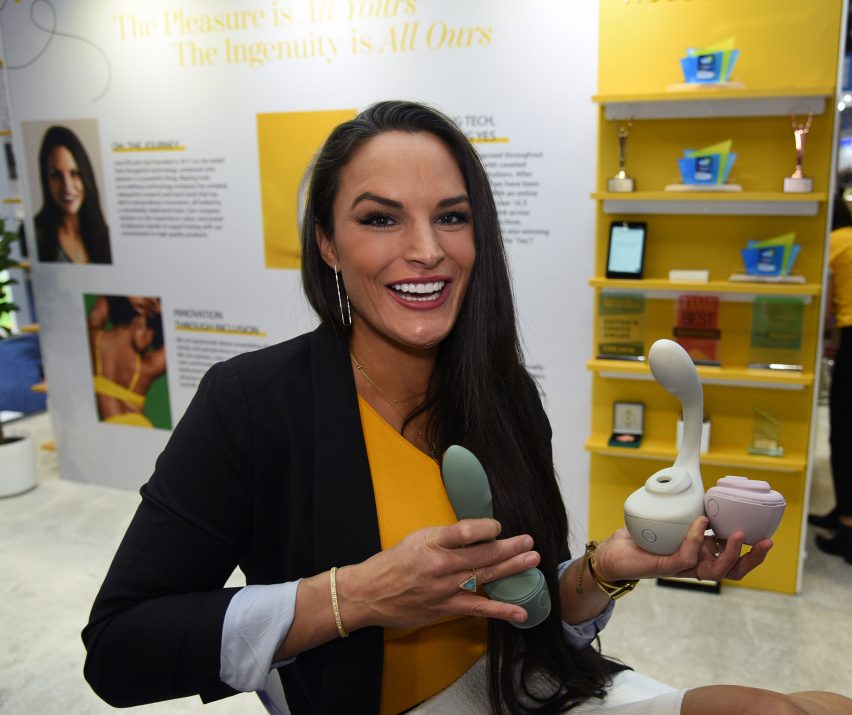
This marks a change from last year's CES, which saw the organisers revoke an Innovation Award for the Osé massager, due to the product being deemed "immoral, obscene, indecent, profane or not in keeping with CTA's image".
However the Consumer Technology Association (CTA) returned the award three months later, after the news sparked gender bias accusations.
"Our presence this year marked a major shift from CES 2019," Lora DiCarlo founder Lora Haddock DiCarlo told Dezeen. "After the 2019 events we became change agents and helped to provide a positive evolution for the sexual health and wellness industry."
"I do believe sexual health technology is gaining acceptance in the space," she added.
"We're at the precipice of social change when it comes to the conversation around sexual health and wellness, which we believe is part of overall health and wellness."
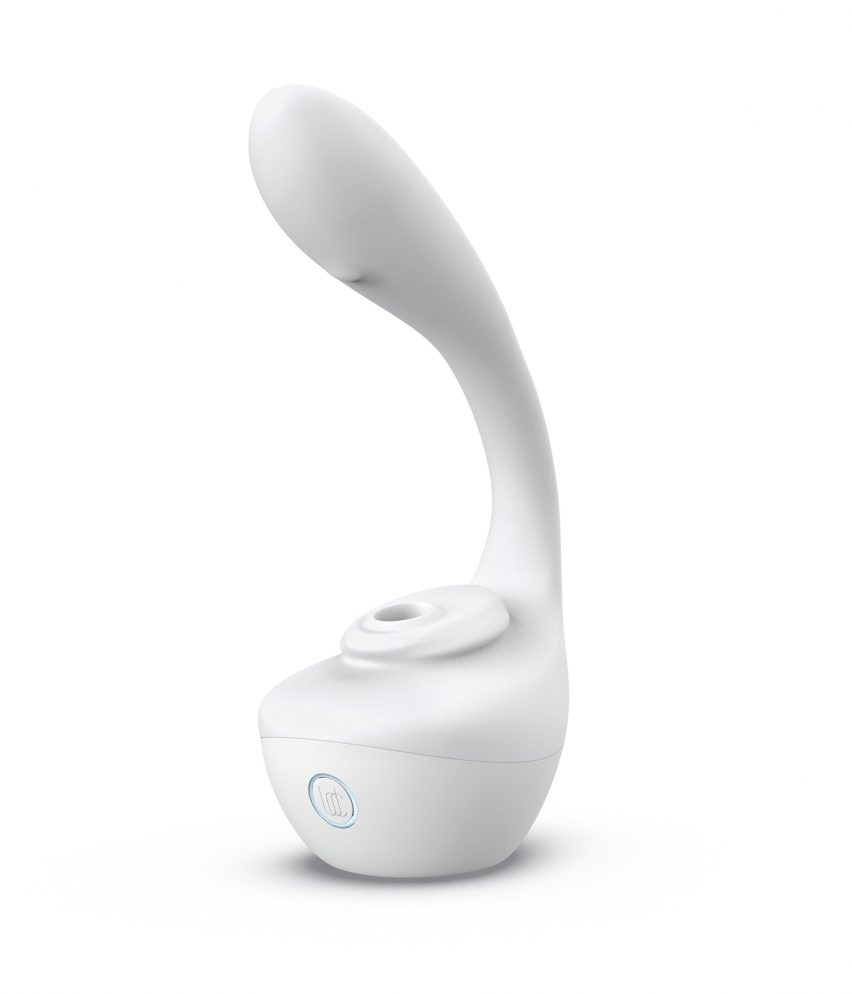
As DiCarlo explained, pre-sales for the Osé massager debuted in January 2019 at CES began in late November that year, and generated $3 million in 2019.
"We are very excited about consumer response to Osé, due largely to the attention last year's news generated," said the sex tech founder.
"We delivered more than $1 million in pre-sales within just five hours of launch and $1.5 million in the first 36 hours of launch."
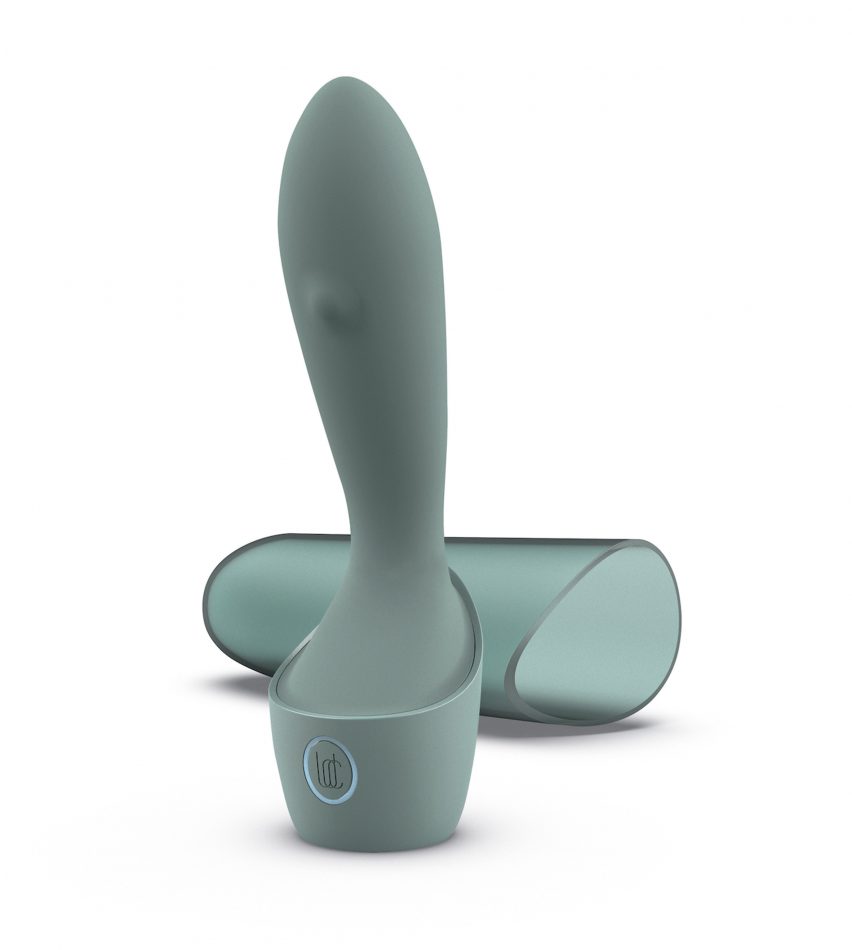
The new Onda and Baci products are essentially two isolated pieces of the Osé massager, which claims to be the world's first hands-free product designed for "blended" orgasms – a combined clitoral and g-spot (vaginal) orgasm.
The curved Onda massager is designed to follow the body's curves to maximise pleasure. It uses micro-robotics and additional "rumbling" sensations to imitate the natural "come hither" motion of human fingers.
Baci on the other hand is designed to mimic the feeling of a mouth, lips and tongue. It employs micro-robotics and air flow technology to "stroke" and "caress", while ridges around the central part of the massager offer a rhythmic pulse against the clitoris.
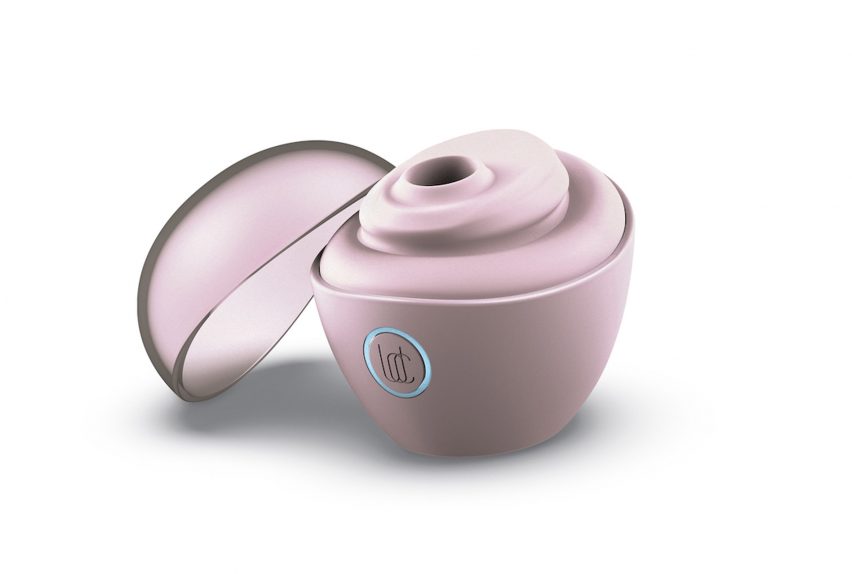
Since last year, DiCarlo believes that the tech industry – and CES more specifically – has improved and started to develop to become a more gender-neutral space.
This is a marked change from opinions in 2019, which spurred tech writer Holly Brockwell to write an opinion piece for Dezeen, arguing that it "proves the technology industry's oblivious attitude towards women's wants and needs".
"We're proud of our advocacy [last year], which helped create a safer and more inclusive environment for all CES attendees," said DiCarlo.
"The reactions have been positive and encouraging, and the women of sex tech who I have seen at this year's show have been incredibly warm and gracious," she continued.